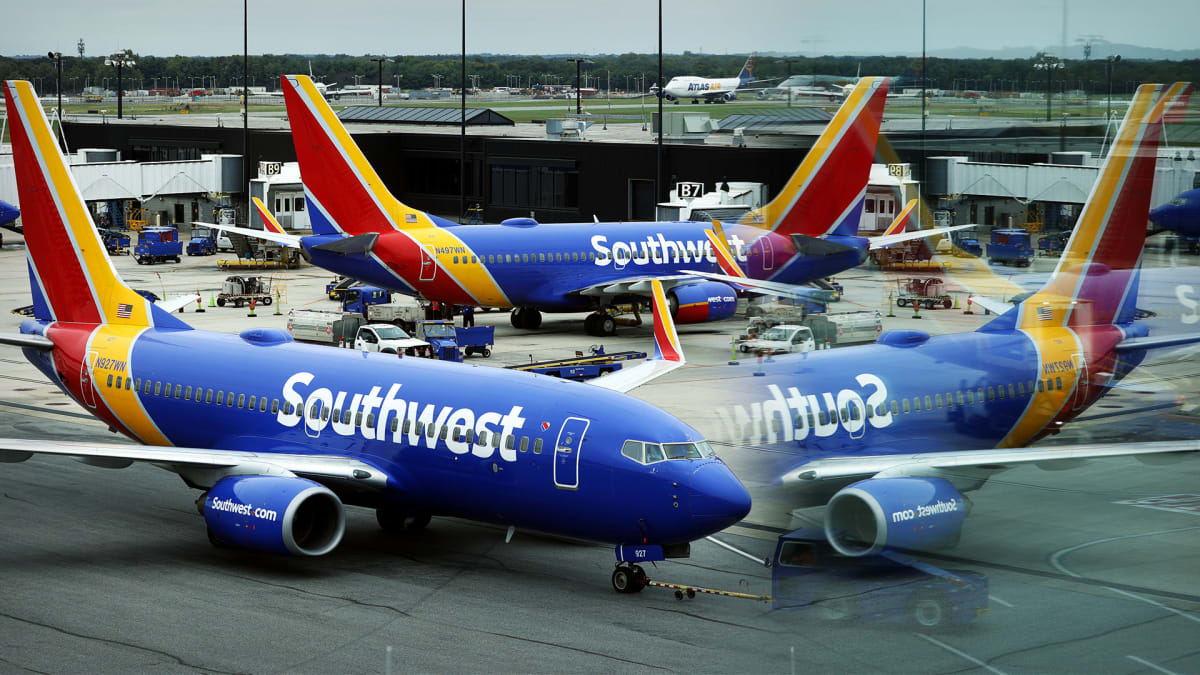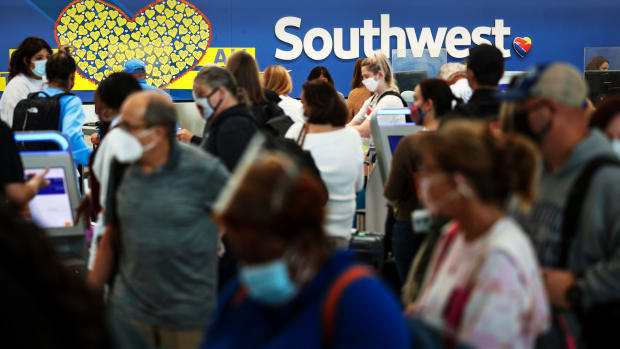
Airlines have to play the long game when it comes to planning routes, staffing, and equipment needs. You can shift a plane from one airport to another or switch around route frequency, but you can't spin up new planes quickly.
That means that if you want to add capacity, you have to make those decisions years ahead. The problem -- and it's a big one for Southwest (LUV) -- is that the covid pandemic changed the equation.
The airline, like its competitors had to go into survival mode, and that meant pausing pretty much every expense that you could pause. That did not include layoffs, Southwest has never had layoffs, but it did mean incentivizing some staff to take early retirement.
On the ground, that's a challenging problem, but a solvable one. A customer service person, gate agent, or baggage handler must be trained, but their inexperience causes issues that the airline can work through.
The same goes for flight attendants. That's a tough job with responsibilities that go well beyond bringing you a drink and a snack, but you can spin up new flight attendants after a few weeks of training. (And the tightening economy may make that challenging job a bit easier.
Even a lack of planes can be overcome as rival airlines have canceled orders and many companies have tightened up their spending. What you can't overcome is a lack of pilots, and that's a problem Southwest has.

Kevin Dietsch/Getty Images
Southwest Needs Pilots
When an airline does not have enough capacity to meet demand, prices go up. CEO Bob Jordan admitted that the airline does not have the available seat miles (ASM) to meet customer demand for tickets.
"If we could fly all of our aircraft, that is we had enough pilots to fly the aircraft on property, we would be roughly 5%, 6%, 7%, 8% higher percentage of capacity or ASMs this year right now. That's about how much more we could fly. It's really more that's the factor that it is the mix of the flying short-haul, medium-haul, long-haul," he said during the airline's third-quarter earnings call.
Jordan was more blunt during a CNBC appearance after earnings were reported.
He said that the airline was "looking for up revenues again on down capacity," which he blamed on the lack of pilots.
Basically, you'll pay more to fly because Southwest does not have the pilots it needs to staff its planes.
Southwest Has Good (and bad) News
Piloting an airplane takes years of training and experience. The pandemic set Southwest's plans back as it both lost pilots and training stopped or at least paused for many people looking to become pilots. The airline has, however, addressed those issues.
"We are on track to hire 1,200 pilots this year and 2,100 pilots next year as planned. we wanted to restore our operational reliability, and we are headed in the right direction, having made a lot of solid progress," Jordan said during the call.
That's good news for the 2023 holiday season, but it's not going to help anyone traveling this year. That's something the newly-promoted CEO addressed.
"Going forward, we believe we have capacity better matched seasonally to demand," he added.
Southwest continues to be aggressive in its hiring/training plans.
"Our pilot hiring and training continue to be the pacing factor for growth as we move forward. We continue to attract high-quality pilot candidates, and the training program to onboard a new pilot to Southwest Airlines are robust. We're operating at our maximum training capacity for pilots, and that will continue well into 2023," he shared.







